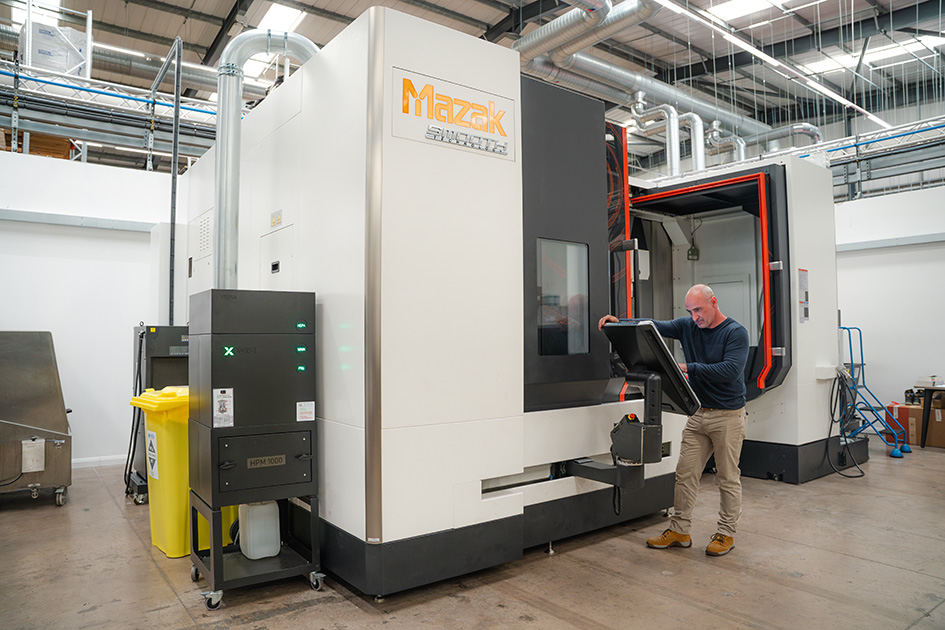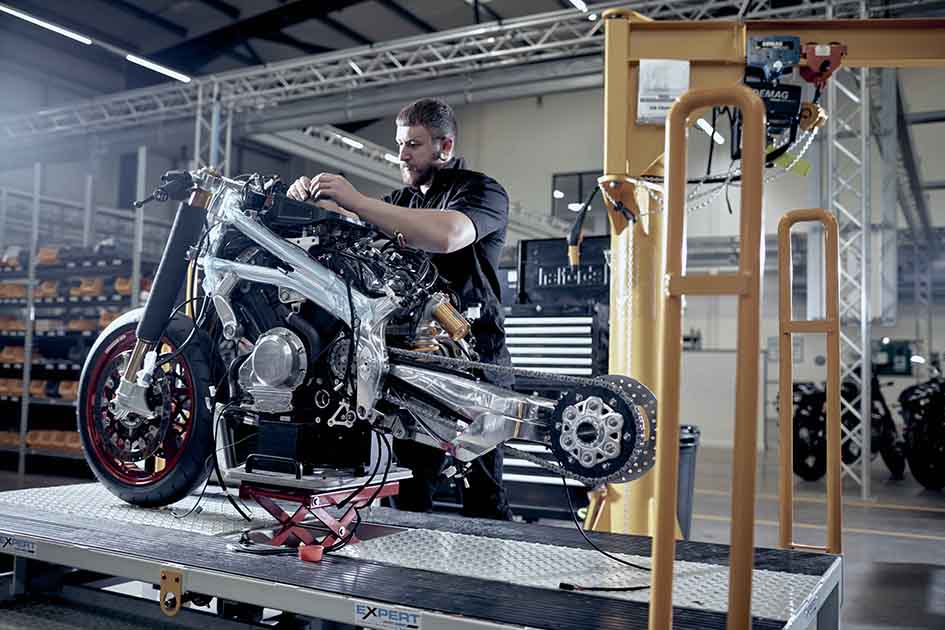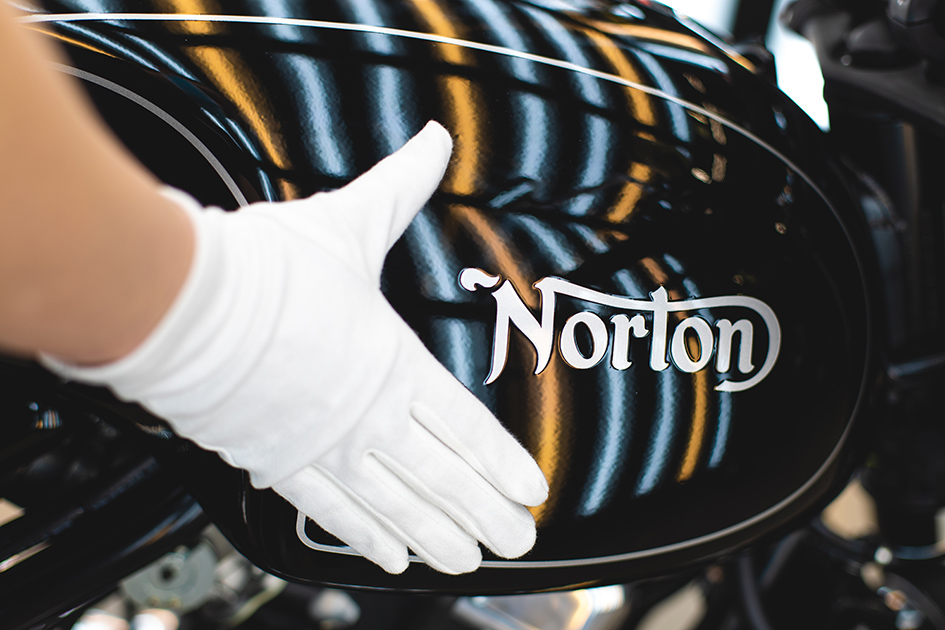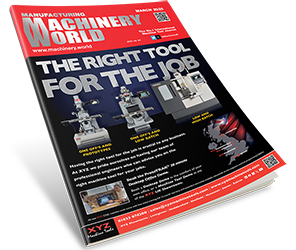One of the great names in British motorcycling is rising again under new ownership and with new state-of-the-art machining technology.
The Norton name is synonymous with the golden age of British motorcycling that ran from the end of the 19th century to the second decade of the 21st.
It’s a history that takes in Grand Prix wins in the 1930s to World Championships in the 50s. It includes innovations like the featherbed frame and the world’s first production ‘superbike’ that was unveiled at the 1967 Earls Court Motor Show.
Alas, the decline of British motorbike manufacturing led the company to the brink of bankruptcy and it was only the intervention of Indian motorbike manufacturing giant, TVS, that saved it in 2020.
TVS is renowned for producing quality bikes at affordable prices, but the new owner’s aim for Norton was very different and centred on making the brand its flagship, luxury line.
“TVS make three million bikes every year in their Indian facilities, so they know manufacturing and they know how to make a product that is so reliable they can offer a 30,000-mile warranty on a 100cc bike,” says Adam Green, Senior Manufacturing Process Engineer at Norton Motorcycles.

Norton opened a brand-new multi-million pound manufacturing facility in Solihull in 2021
“Norton is a very different proposition for them. Norton is premium brand for TVS and as an owner, they want flawless paintwork, flawless polishing, reliability, component testing, the lot. Our brief is simple, make the finest bikes Norton have ever made.”
TVS’ plans for the brand have included the opening of a new manufacturing facility in Solihull, West Midlands, that aims to build British bikes using a combination of traditional hand-crafted ways of working with modern manufacturing techniques to deliver consistently high quality.
That willingness to embrace new ways of working led the company to critically examine how it made its bike frames in its fabricating facility.
“Previously, we’d been hand-bending and hand-scalloping the bike frames because we didn’t know how to do anything different,” says Adam. “We could get the casts pre-machined but that would mean we had the welders controlling the tolerances. It’s difficult to hold a tight dimension while the component is moving around with all the variances, from the skill of the welder to the time of year.”
The TVS takeover gave Norton much greater access to technical input which was invaluable when the company began planning for potential new motorbikes.
“One idea is a cast frame and, instead of welding detailed components into the frame, we could machine the details into the casting which gives us much higher tolerances.”
Norton’s commitment to only using the highest quality equipment led them to Yamazaki Mazak. “We looked at various options, but we wanted to be seen to be investing in the best available machine,” says Adam. “Mazak are the kind of people we want to be doing business with.”

Norton is using its new facility to build British bikes by combining traditional hand-crafted ways of working with modern manufacturing techniques.
Norton specified a VTC 800/30SLR, manufactured in nearby Worcester, which has a high capacity working area and a wide door opening making it ideal for larger workpieces, such as motorbike frames.
“The size of the frame meant we needed a big machine, but also one that could work to very high tolerances. It’s all about repeatability. The machine takes away manual process. Now every single dimension will be within 0.2 mm of each other. We’ve tightened tolerances up by 80% whereas previously there was 6 mm of difference at times from one frame to another.”
Adam continues: “The shopfloor is my customer. We can measure everything to microns in temperature-controlled facilities. Nothing is going to assembly now unless it is right. I have to give them a good pass to ensure they can meet their goals. Now, when the shopfloor receives a frame, the repeatability is going to be much better.”
The new machine will be housed in a state-of-the-art production facility that is also home to the company’s new global design and R&D hub. It forms a key part of Norton’s strategic growth plan on its journey to becoming a leading player in luxury and high-performance motorcycles. At the heart of the new facility lie rigorous quality controls.
“When I came here production was in a Grade 2 listed building and fabrication was in a shed. Now, bikes won’t leave factory unless everything is perfect even down to paint defects or slight scratches. If we find anything it goes back to be reworked.”
“The core purpose remains frame machining, but we have been able to also introduce detail parts onto the machine as well, such as swing arms that are billeted from aluminium. The VTC is more than capable.”
The Mazak has had an almost revolutionary effect on Norton’s productivity and the company’s ability to service bikes once they leave the factory.
“We’ve been able to massively take out production time. Previously with all the checking and adjusting we were really only able to make small numbers. With the Mazak and the pre-welding, we think we can do 30 per day and with more accuracy.”
“The Mazak has transformed what we are doing but it’s important we don’t lose sight of our heritage and our traditions. We build-to-order and our focus will always be on quality rather than output. The Mazak has been crucial in helping us blend old manufacturing techniques with new ones, keeping our traditions whilst moving into the 21st Century.”








Leave a Reply